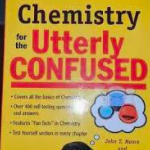The old aphorism that crises bring out both the best and worst in people certainly holds true during these times of the 120-nanometer (0.0000047 inches) monster that has hijacked the entire world.
coronavirus
Throughout the month of January, the world was gripped by an unfolding drama. Glued to their television sets and social media accounts, people were sharing news stories and punditry, eager to learn of the latest developments.
If you think the new coronavirus pandemic is an unexpected tragedy public health officials are hoping to end swiftly, you're mistaken, says anti-vaccine group
When the COVID-19 pandemic finally slows down, there will be one burning question that all of us will want to know the answer to: "Who is to blame for the coronavirus?"
Within the coming weeks, we should be starting to get a picture of whether remdesivir will be a savior to the world, just another failed drug, or something in between.
By Alex Berezow, PhD; Josh Bloom, PhD; Chuck Dinerstein, MD, MBA; and Thom Golab
The conventional wisdom regarding COVID-19 changes every other week.
Mayor Giuliani now thinks he's Dr. Giuliani. His website is offering up two very bad videos on coronavirus and COVID-19.
Q: What's worse than being in the middle of a coronavirus pandemic?
A: Being in the middle of a coronavirus pandemic and having to read about synthetic organic chemistry.
Yet, here we are, so pay attention.
If you read the New York Times, I have a very serious question for you: Why?
There's something irresistible about conspiracy theories.












